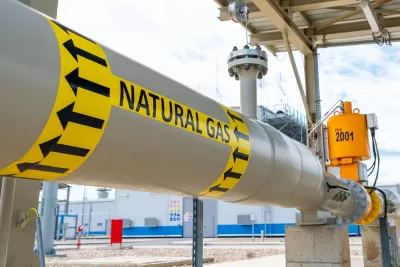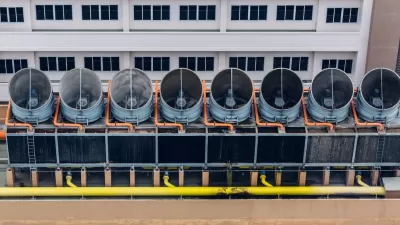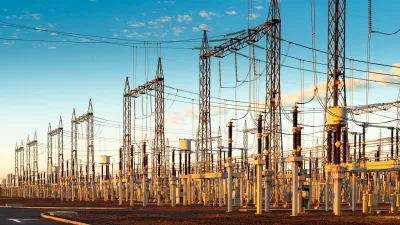The center would be powered by a new, 1,500-megawatt natural gas plant, which critics say will drive up emissions and contribute negatively to the region’s air quality.

A massive data center planned for northeast Louisiana is drawing concern from residents and critics who say the project will create carbon emissions from a proposed 1,500-megawatt natural gas plant owned by Entergy that would be built to power the center. “Data centers are forecast to account for up to 12% of all U.S. electricity demand by 2030, according to consulting firm McKinsey and Co., citing “skyrocketing compute and data demands.” Today that amount is 3% to 4%, McKinsey said.”
As Pam Radtke explains in an article for Floodlight, “The data center, the power plant, or possibly both, will be built on a 1,400-acre site, called Franklin Farms, owned by the state, according to filings with the Louisiana Public Service Commission.”
The company that would own the data center is yet to be named, Radtke adds. “Details about the data center are cloaked in secrecy and non-disclosure agreements. But Entergy Louisiana has filed hundreds of pages of redacted documents with state regulators about its dealings with the unnamed company. In its filings, Entergy says the data center will employ 300 to 500 people with an average salary of $82,000.”
To offset its emissions, the unnamed company is “expected to make a substantial contribution” toward an Entergy carbon capture and storage project. But there are concerns beyond the environmental aspects. According to Radtke, “Costs not paid by the data center, either through electricity rates or separate agreements, would be spread across Entergy’s 1.1 million Louisiana customers, although the utility says the proposed deal ‘largely insulates (Entergy’s) other customers from paying for the upgrades required’ for the data center.”
FULL STORY: Huge gas plant eyed to power mystery $5B Louisiana data center

Alabama: Trump Terminates Settlements for Black Communities Harmed By Raw Sewage
Trump deemed the landmark civil rights agreement “illegal DEI and environmental justice policy.”

Planetizen Federal Action Tracker
A weekly monitor of how Trump’s orders and actions are impacting planners and planning in America.

Why Should We Subsidize Public Transportation?
Many public transit agencies face financial stress due to rising costs, declining fare revenue, and declining subsidies. Transit advocates must provide a strong business case for increasing public transit funding.

Understanding Road Diets
An explainer from Momentum highlights the advantages of reducing vehicle lanes in favor of more bike, transit, and pedestrian infrastructure.

New California Law Regulates Warehouse Pollution
A new law tightens building and emissions regulations for large distribution warehouses to mitigate air pollution and traffic in surrounding communities.

Phoenix Announces Opening Date for Light Rail Extension
The South Central extension will connect South Phoenix to downtown and other major hubs starting on June 7.
Urban Design for Planners 1: Software Tools
This six-course series explores essential urban design concepts using open source software and equips planners with the tools they need to participate fully in the urban design process.
Planning for Universal Design
Learn the tools for implementing Universal Design in planning regulations.
Caltrans
Smith Gee Studio
Institute for Housing and Urban Development Studies (IHS)
City of Grandview
Harvard GSD Executive Education
Toledo-Lucas County Plan Commissions
Salt Lake City
NYU Wagner Graduate School of Public Service





























